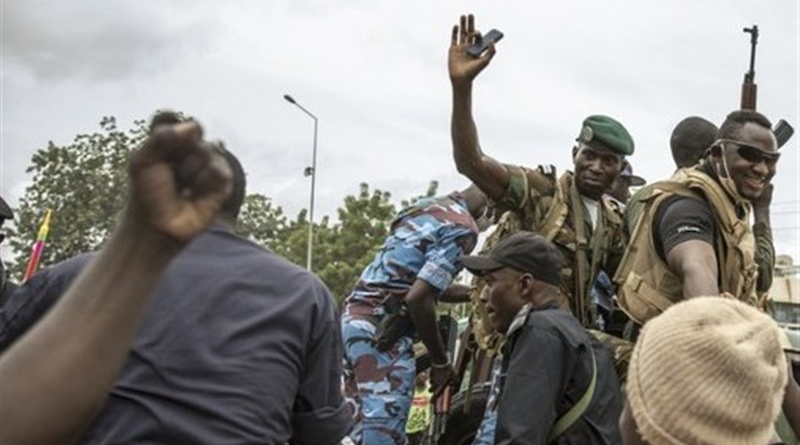Malian armed forces and Islamist armed groups have killed and otherwise abused numerous civilians in central and northern Mali since April 2023, Human Rights Watch said Wednesday. Mali’s transitional military authorities, with the support of the National Human Rights Commission and international human rights experts, should urgently conduct credible and impartial investigations into the alleged abuses, and hold those responsible to account.
Islamist fighters of the Al-Qaeda-linked Group for the Support of Islam and Muslims (Jama’at Nusrat al-Islam wa al-Muslimeen, JNIM) have killed more than 160 civilians, including at least 24 children, since the beginning of April. Malian armed forces have killed up to 40 civilians, including at least 16 children, during counterinsurgency operations. The Malian government has failed to take adequate measures to protect civilians in conflict affected areas.
“The targeted killing of civilians by Islamist armed groups and the Malian army are war crimes that should be thoroughly and impartially investigated,” said Ilaria Allegrozzi, senior Sahel researcher at Human Rights Watch. “The Malian authorities should seek independent regional and international human rights experts to assist Malian judicial authorities so those responsible for these grave crimes can be held to account.”
In August and September, Human Rights Watch interviewed 40 people by telephone with knowledge of attacks by the Malian army and Islamist armed groups. They included 33 witnesses to abuses and a half dozen members of Malian civil society groups and international organizations. On October 9, Human Rights Watch sent letters to Mali’s justice and defense ministers detailing its findings about alleged abuses and related questions. They have not replied.
The JNIM and the Islamic State in the Greater Sahara (ISGS) have committed numerous serious abuses in several Mali regions, including widespread killings, rapes, and looting of villages. The recent abuses come as the United Nations peacekeeping mission to Mali, the Multidimensional Integrated Stabilization Mission in Mali, prepares to leave the country by December 31.
On September 7, Islamist fighters believed to be affiliated with the JNIM attacked a passenger boat traveling on the Niger River near the village of Abakoira in the Timbuktu region. The attackers fired at least three rockets at the boat, killing 49 people. Many victims drowned or burned to death when the boat caught fire. “I jumped into the water,” said one survivor. “Many others jumped, too. Some were screaming inside the boat because of the fire. It was total terror. Many died because they couldn’t swim.”
The boat attack is linked to the JNIM’s siege of the town of Timbuktu since mid-August, limiting freedom of movement on main roads and waterways along the Niger River. The JNIM has attacked towns and villages in both Maliand Burkina Faso, cutting the civilian population off from food, basic necessities, and aid, to gain control.
Human Rights Watch also documented Malian armed forces’ abuses during three counterinsurgency operations against Islamist armed groups largely linked to Al-Qaeda – in Gadougou, Trabakaoro and Sambani villages, in Nara and Timbuktu regions. During the operation in Sambani on August 6, authorities arrested 16 men and a boy, whose bodies were later found outside the village. Witnesses reported the involvement of foreign, “white” armed men, seemingly members of the Russia-backed Wagner Group, which has supported the current government since December 2021.
Both sides have targeted villagers for allegedly collaborating with the other side. “The army … kills people without fearing any consequences,” said a man from Mopti region. “The jihadists also kill, kidnap, and burn without fear of being held accountable. And we, the civilians, we are caught between a rock and a hard place in our own country.”
In July, Human Rights Watch reported on abuses by members of the Malian army and associated foreign fighters, apparently from the Wagner Group, including summary executions and enforced disappearances of several dozen civilians during counterinsurgency operations in central Mali.
Violence has intensified across Mali since 2022, amid the political instability following the May 2021 coup. The Armed Conflict Location & Event Data Project, a data collection, analysis, and crisis mapping project, found violence against civilians in Mali between January and August had increased by 38 percent compared with 2022, with the JNIM, the Malian armed forces and Wagner Group, and the ISGS the main attackers.
In addition, security in northern Mali has sharply deteriorated since late August, following a resumption of hostilities between the Tuareg rebels of the Coordination of Azawad Movements – an alliance of armed ethnic Tuareg groups – and the Malian army. Tuareg rebels have sought the independence of northern Mali since the mid-2000s, but signed a peace deal with the Malian government in 2015.
All parties to Mali’s armed conflict are bound by international humanitarian law, notably Common Article 3 of the Geneva Conventions of 1949 and customary laws of war. Individuals who commit serious violations of the laws of war, including summary executions and torture, should be prosecuted for war crimes. Mali is a party to the Rome Statute of the International Criminal Court, which has opened an investigation into alleged war crimes committed in Mali since 2012.
“Governments concerned with the spiraling violence and abuses in Mali should both press and assist the Malian authorities to carry out thorough and impartial investigations into the serious abuses committed by all sides,” Allegrozzi said. “The Malian judicial authorities should work with the National Human Rights Commission, the African Commission on Human and Peoples’ Rights, and the UN independent expert on human rights in Mali, to investigate these abuses.”

